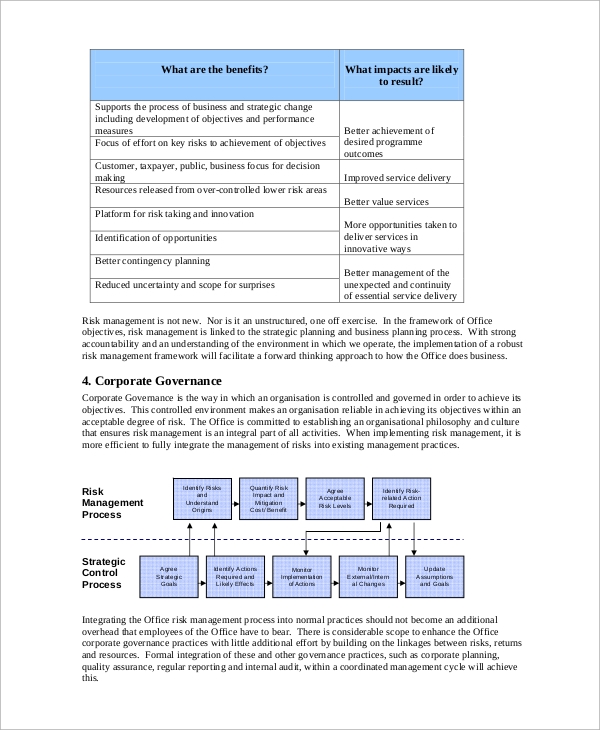Risk management is an essential aspect of any project or business operation. It involves identifying potential risks, assessing their likelihood and impact, and developing strategies to mitigate or manage them effectively. A well-developed risk management plan is crucial for ensuring the success and sustainability of a project or business.
One of the key components of a risk management plan is the use of templates. Templates provide a structured framework for identifying, analyzing, and managing risks, making the process more efficient and effective. By using templates, organizations can ensure that all potential risks are considered and addressed in a systematic way.
Types of Risk Management Plan Templates
There are various types of risk management plan templates available, each designed to address specific types of risks or industries. Some common types of templates include project risk management templates, financial risk management templates, and operational risk management templates. These templates typically include sections for identifying risks, assessing their impact and likelihood, developing risk mitigation strategies, and assigning responsibilities for managing risks.
Project risk management templates are often used in industries such as construction, engineering, and IT, where projects are complex and involve multiple stakeholders. These templates help project managers identify potential risks that could impact project timelines, budgets, and quality, and develop strategies to mitigate these risks. Financial risk management templates, on the other hand, are used in industries such as banking, insurance, and investment, where managing financial risks is critical to the success of the business.
Operational risk management templates are used in a wide range of industries to identify and manage risks related to day-to-day operations, such as supply chain disruptions, equipment failures, and regulatory compliance issues. These templates help organizations develop contingency plans and procedures to minimize the impact of operational risks on their business.
Overall, risk management plan templates are valuable tools for organizations looking to proactively manage risks and ensure the success of their projects and operations. By using templates, organizations can streamline the risk management process, improve decision-making, and increase the likelihood of achieving their objectives.
In conclusion, risk management plan templates are essential for organizations looking to effectively manage risks and ensure the success of their projects and operations. By utilizing templates, organizations can identify, assess, and mitigate risks in a systematic and structured way, ultimately improving their chances of achieving their strategic goals.
